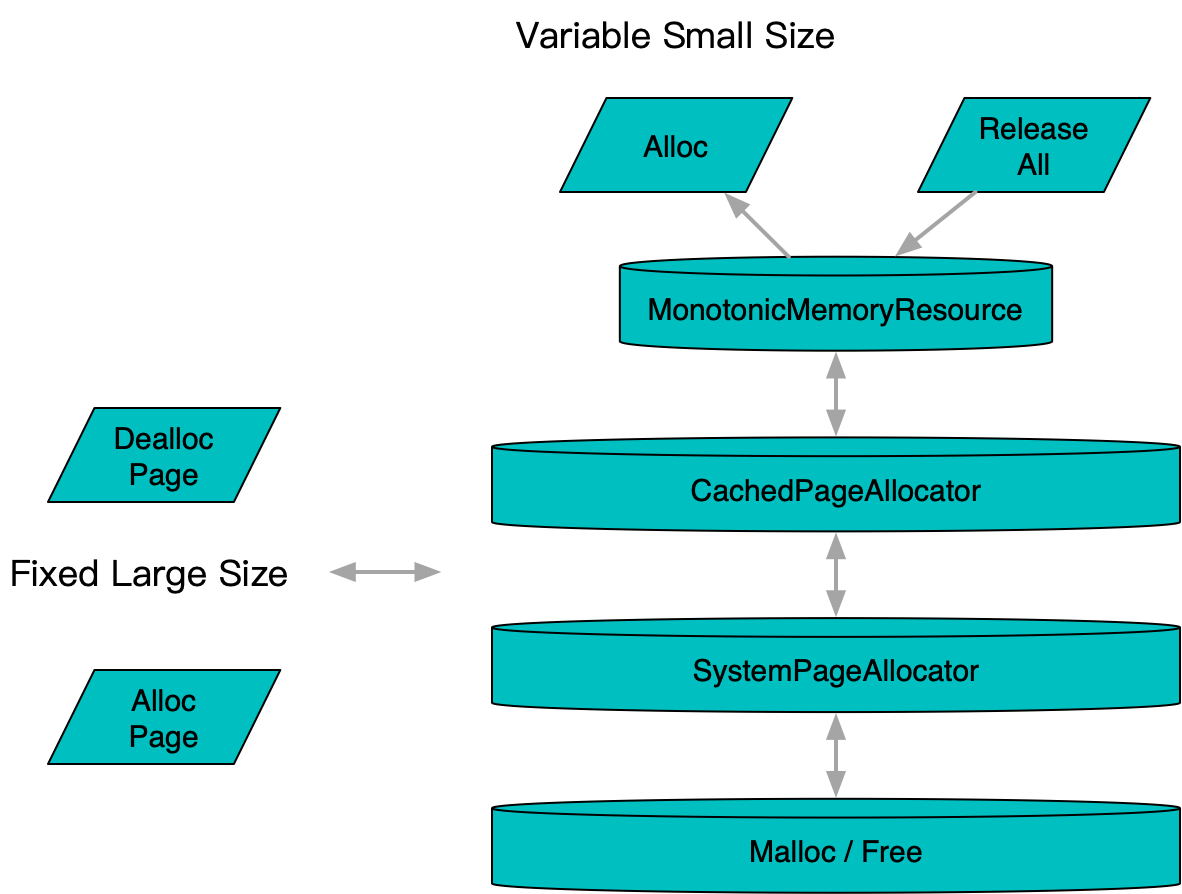babylon
page_allocator
Principle

A manager for allocating and freeing fixed-size memory blocks. Unlike general-purpose malloc, its fixed-size nature avoids complex implementations such as buddy algorithms, making it lighter and faster. In practical use, scattered small memory allocations are managed in aggregate through higher-level mechanisms like memory_resource.
SystemPageAllocator
An allocator that allocates and frees memory in fixed system page sizes. It directly interfaces with operator new and operator delete at the system level.
CachedPageAllocator
Frees memory blocks by caching them internally using babylon::ConcurrentBoundedQueue for reuse. When the cache overflows or underflows, it requests and releases memory from a lower-level allocator, such as SystemPageAllocator.
Usage
#include <babylon/reusable/page_allocator.h>
using ::babylon::PageAllocator;
using ::babylon::SystemPageAllocator;
using ::babylon::CachedPageAllocator;
// The system page allocator is accessed as a singleton
auto& system_page_allocator = SystemPageAllocator::instance();
// The cached page allocator requires explicit construction
CachedPageAllocator cached_page_allocator;
// Set the upstream allocator from which memory blocks are retrieved, defaults to SystemPageAllocator::instance()
cached_page_allocator.set_upstream(page_allocator);
// Set the cache capacity
cached_page_allocator.set_free_page_capacity(128);
// Retrieve the page size, which defaults to the system page size, typically 4096
auto size = page_allocator.page_size();
// Allocation/Deallocation
void* pages[100];
page_allocator.allocate(pages, 100);
page_allocator.deallocate(pages, 100);
// Get the current number of cached pages and cache capacity
cached_page_allocator.free_page_num();
cached_page_allocator.free_page_capacity();
// Retrieve the current cache hit data
auto summary = cached_page_allocator.cache_hit_summary();
// summary.sum is the total number of cache hits
// summary.num is the total number of calls
// sum / num gives the hit rate, and calling this periodically to record the difference allows for hit rate monitoring